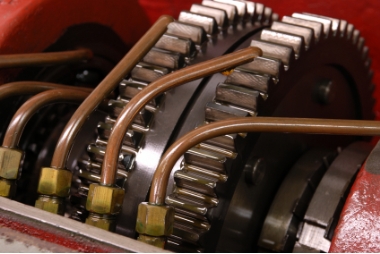|
Mechanical Engineering
Simple to advanced mechanics
Mechanical Engineering (ME) is not surprisingly one of the oldest and broadest engineering disciplines. Common usage meaning refers to any device having parts that perform, or assist in performing, any type of work. ME has evolved from the eighteenth century, the industrial revolution being spurred on and gaining momentum from the invention of the steam engine. It received concrete recognition in 1847 by the founding in Birmingham of the Institute of ME.
A result of this was the development of a new major classification of engineering. Encompassing tools, machines, and mechanics it's the branch of engineering that encapsulates the generation and application of mechanical power and heat. Also in the design, production and use of machines and tools.
ME incorporates all from the scientifically driven approach right down to the classic simple machines which has to be the birth of ME long ago. A simple machine is a device that transforms the direction or magnitude of a force, without consuming any energy, (ignoring small frictional losses).
A mechanism is said to be pertaining to a machine, or to machinery, or tools if made or formed by a machine or with machine tools, Such as in Precision Engineering, these are firms who specialize in making very precise mechanical products and components.
Mechanics is the branch of physics that predicts how physical bodies and mechanisms will behave when they're subjected to a force or forces. Also the subsequent effect(s) of the mechanism or body on their surrounding environment.
The Mechanics discipline is deep rooted in several ancient civilizations. Quite sometime ago now, early on during the modern period. Scientists of the day, including the the now famous names and likes of Kepler, Galileo and particularly Newton. Laid down the foundations of what is known today as the Classical Mechanics.
The Classical Mechanics encompassed in Mechanical Engineering, is and will continue to be a native and integral key role in the development, operation and manufacture of new machines and processes that help to benefit people the world over.
Engineers can't help but (they love to, more like) to use and apply their creative imaginations, development and professional skills while combining both theory and practice to aid creation of new more advanced devices and processes.
To be able to do this, engineers need a comprehensive and in-depth understanding of scientific and engineering processes coupled with lateral thinking. The outcome of all this historical technical know how, is amazing inventive innovation.
This inventing innovation is crucial to meet the demands in developing solutions to ever advancing real-life problems, in defiance of conflicting requirements. Along with a good base knowledge, it is essential to keep up with breaking developments, new methods and processes.
Real world commercial engineers, although specializing in one discipline, have to develop and combine broad technical and management skills to continually hone and maintain their competitive advantage for themselves and consequentially the companies they work for. Have a look at the Technical page
have a look at Machine Shop Projects
Return from Mechanical to the Home Page
PLEASE feel free to use this button and donate - You Are Secure!
so Machine-Information-Systems.Com can keep helping you.
|





